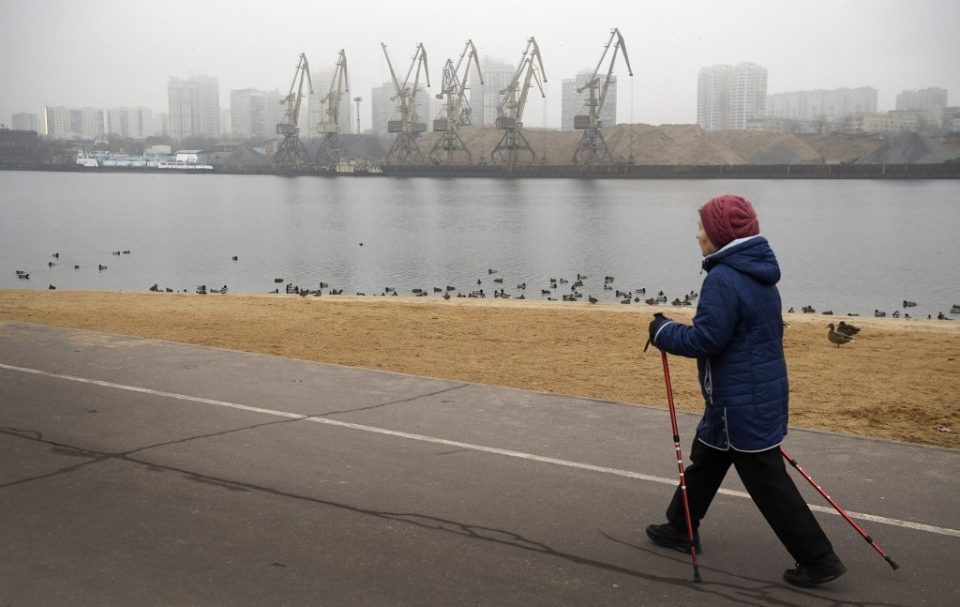
MOSCOW, Russia (AFP) — This year was the hottest ever registered in Russia, the country’s weather chief said on Monday, as climate change pushes global temperatures to record highs.
“This year in Russia was the hottest for the entire period of instrumental observations,” the head of the Gidromedtsentr weather service, Roman Vilfand, told Russian news agencies.
He said Moscow’s average temperature for 2019 had hit 7.6-7.7 degrees Celsius (45.7-45.9 degrees Fahrenheit), beating the previous record by 0.3 degrees.
Vilfand said January will continue to be warmer than usual in almost all regions of Russia.
Weather records have been kept since 1879 in Moscow and since 1891 in Russia as a whole.
Global warming has sent temperatures rising around the world, with the United Nations saying earlier this month that 2019 was on course to be one of the three hottest years on record.
Known for its cold winters, Moscow has seen its warmest December in a century this year.
While some flurries fell on Monday, the Russian capital — normally blanketed with snow by mid-December — has seen a largely snowless and cloudy last month of the year.
The city’s ski resorts were closed and spring buds were beginning to show on trees — three or more months too early.
– Artificial snow –
The capital usually puts on huge winter celebrations during the national holidays over the first eight days of January and this year is resorting to unusual measures like dumping artificial snow in central Moscow.
Muscovites ridiculed city hall last week when piles of snow appeared out of nowhere on central Tverskaya avenue, and officials explained they were constructing a snowboarding hill from snow gathered at the capital’s ice skating rinks.
The Zaryadye park near the Kremlin boasted a “Snow Garden” with artificial snow and trees. “Come look at the snow!” it beckoned followers on its Instagram account.
Even in Siberia, where winters are notoriously harsh, anomalously warm Decembers have become a recurring phenomenon in the last decade, said Anna Lapchik, who heads the Western Siberian weather service.
“We can say that winters are becoming milder, with more snow,” she said in televised remarks.
Russian President Vladimir Putin has always been reluctant to acknowledge the link between human activity and global warming.
At his traditional year-end annual news conference earlier this month, Putin insisted that “nobody knows” the causes of climate change.
But he acknowledged the consequences of global warming could be catastrophic for a country that is one of the world’s biggest producers of carbon fuel and with a fifth of its land within the Arctic circle.
Putin said that the rate of warming for Russia was 2.5 percent higher than elsewhere on the planet.
And “for our country, this process is very serious,” he said.
© Agence France-Presse







